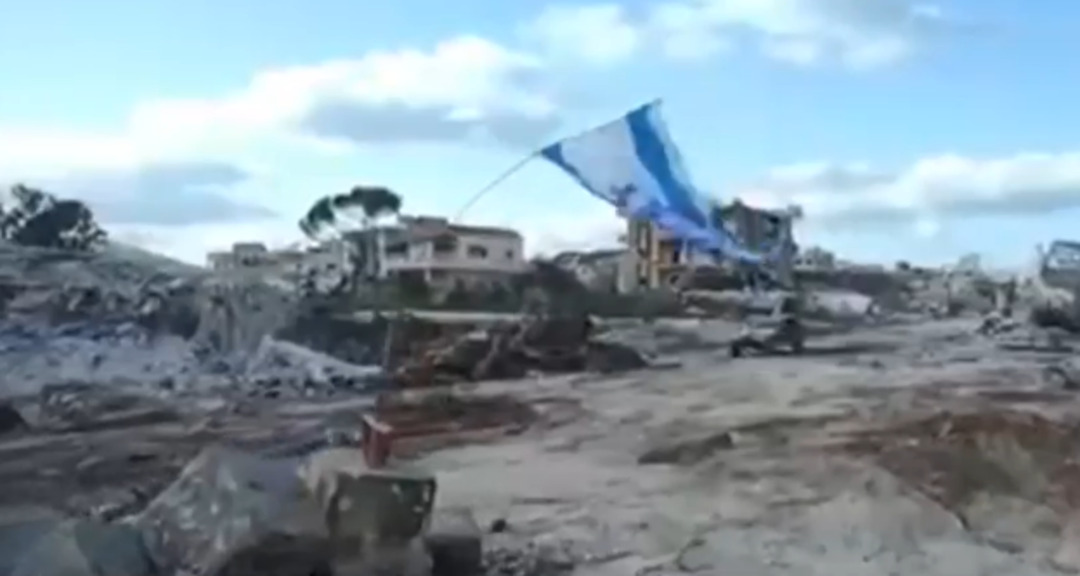-
Lebanon on the Brink of New Escalation: Renewed Conflict between Israel and Hezbollah

Developments continue in the Lebanese arena despite the conclusion of the last round of fighting between Israel and Hezbollah. As Israeli forces continue their strikes against Hezbollah positions in southern Lebanon, Hezbollah is reconstructing its military strength, raising questions about the future of the conflict and whether the region is on the verge of a new escalation.
In recent weeks, Israel has intensified its military operations targeting Hezbollah elements and facilities. The Israeli military announced that it targeted "a Hezbollah member involved in restoring the party's infrastructure." These attacks are among the most severe since the ceasefire agreement, reflecting an interesting Israeli escalation, especially with statements from Israeli Finance Minister Bezalel Smotrich warning that "Lebanese infrastructure will pay a heavy price if Hezbollah continues its movements."
In an interview with Sky News Arabia, international relations researcher Ali Shakir points out that Hezbollah is adopting two main strategies in this crisis. The first pertains to changes in the military equation, particularly the evolution of Israeli capabilities in military and intelligence technology that enhance the precision of targeting Hezbollah leaders. The second relates to the internal political dimension, where the party aims to give the Lebanese political authority and the international community an opportunity to take a stance regarding Israeli aggressions, in line with agreements preceding Resolution 1701 and the ceasefire.
Shakir explains that there is an unspoken agreement stipulating that the Lebanese political authority should confront diplomacy, in exchange for Hezbollah's commitment to de-escalation. However, he warns that continued Israeli escalation could lead to the collapse of this understanding, potentially compelling the party to respond militarily.
Amid ongoing Israeli bombardment and security tensions, Lebanon faces severe economic challenges, particularly regarding reconstruction efforts. After the 2006 war, losses were estimated at around $7.6 billion, with most costs borne by Arab countries. Now, the World Bank estimates that any new escalation could cost Lebanon about $11 billion more, raising questions about the willingness of any international or regional party to support reconstruction efforts in the event of a new war.
According to Shakir, the current phase represents a "test" of the capability of Lebanese political parties and the international community to deter Israel. However, he warns that if the situation continues without effective intervention, it may force Hezbollah to respond militarily, potentially leading the region into a comprehensive confrontation.
He also notes that Israeli aggressions have not been limited to air violations and bombardments; they have extended to over a thousand Israelis entering Lebanese border areas under the pretext of religious visits, posing an additional challenge to the Lebanese state.
In this context, it appears that Hezbollah is carefully balancing between the option of temporary de-escalation and escalation if Israeli attacks persist. As Israel continues its military operations, it believes that regional and international conditions allow it to carry out preemptive strikes without significant repercussions. The pressing question remains: Will we soon witness a new military escalation, or do political understandings still have the capacity to regulate the pace of confrontation?
You May Also Like
Popular Posts
Caricature
BENEFIT Sponsors BuildHer...
- April 23, 2025
BENEFIT, the Kingdom’s innovator and leading company in Fintech and electronic financial transactions service, has sponsored the BuildHer CityHack 2025 Hackathon, a two-day event spearheaded by the College of Engineering and Technology at the Royal University for Women (RUW).
Aimed at secondary school students, the event brought together a distinguished group of academic professionals and technology experts to mentor and inspire young participants.
More than 100 high school students from across the Kingdom of Bahrain took part in the hackathon, which featured an intensive programme of training workshops and hands-on sessions. These activities were tailored to enhance participants’ critical thinking, collaborative problem-solving, and team-building capabilities, while also encouraging the development of practical and sustainable solutions to contemporary challenges using modern technological tools.
BENEFIT’s Chief Executive Mr. Abdulwahed AlJanahi, commented: “Our support for this educational hackathon reflects our long-term strategic vision to nurture the talents of emerging national youth and empower the next generation of accomplished female leaders in technology. By fostering creativity and innovation, we aim to contribute meaningfully to Bahrain’s comprehensive development goals and align with the aspirations outlined in the Kingdom’s Vision 2030—an ambition in which BENEFIT plays a central role.”
Professor Riyadh Yousif Hamzah, President of the Royal University for Women, commented: “This initiative reflects our commitment to advancing women in STEM fields. We're cultivating a generation of creative, solution-driven female leaders who will drive national development. Our partnership with BENEFIT exemplifies the powerful synergy between academia and private sector in supporting educational innovation.”
Hanan Abdulla Hasan, Senior Manager, PR & Communication at BENEFIT, said: “We are honoured to collaborate with RUW in supporting this remarkable technology-focused event. It highlights our commitment to social responsibility, and our ongoing efforts to enhance the digital and innovation capabilities of young Bahraini women and foster their ability to harness technological tools in the service of a smarter, more sustainable future.”
For his part, Dr. Humam ElAgha, Acting Dean of the College of Engineering and Technology at the University, said: “BuildHer CityHack 2025 embodies our hands-on approach to education. By tackling real-world problems through creative thinking and sustainable solutions, we're preparing women to thrive in the knowledge economy – a cornerstone of the University's vision.”
opinion
Report
ads
Newsletter
Subscribe to our mailing list to get the new updates!






















